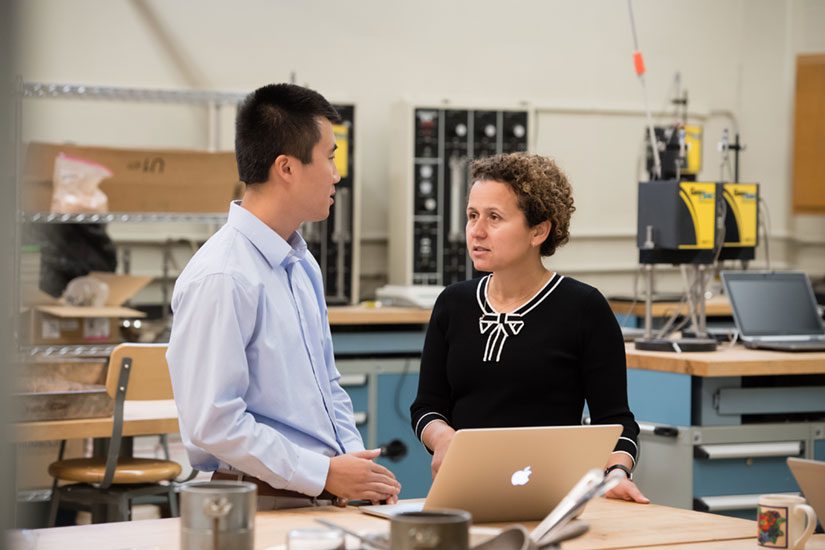A critical bottleneck for achieving the design throughput of conversion process in biorefineries is material flow throughout the system. Variations in biomass characteristics (e.g. particle size, shape, density, ash and moisture content) cause frequent plugging of bins, conveyors, and failure of other material handling equipment. These failures impact the on-stream time of a reactor.
New research based on a collaboration among Clemson University, Idaho National Laboratory (INL) and University of Texas at San Antonio (UTSA) will develop analytical models to optimize the design of the feeding system.
Sandra Eksioglu, an associate professor of industrial engineering, is leading this team that was awarded $1.8 million in federal funding. Faculty and students from Clemson’s industrial and civil engineering departments will use “discrete element method” and “mathematical optimization” to build analytical models to improve the design of the system. The technology will be tested by the Bioenergy Technologies Department of INL using switchgrass, miscanthus and corn stover. The team’s findings will be made available on the web for free with the help of collaborators from the UTSA’s Open Cloud Institute.

“Biomass processing has proven to be the Achilles heel of pioneer biorefineries. The models developed by this team will contribute to the design tools needed to overcome these challenges and can have a substantial impact to the biorefining industry,” said Kevin Kenney, Director of the INL Bioenergy Program.
“This project will advance the state-of-the-art computational methods used to identify an optimal and integrated biorefinery process design to achieve the design throughput of the reactor,” said Roni, INL’s research scientist.
Qiushi Chen, assistant professor of civil engineering at Clemson, plans to study the ground-up biomass in his lab and help build the analytical models. “My student and I will develop a quantitative model that will provide an accurate characterization of the relation between biomass characteristics and the system performance,” he said. “Sandra and her students will use these results in their optimization models to identify system designs that are most efficient and robust.”
The research could also help make it more cost-effective to produce biomaterials and bioproducts other than fuel, said Timothy Richter, who is a collaborator on the research and president of Matera, a consultancy based in Glen Allen, Virginia.
The funding comes from the Integrated Biorefinery Optimization program, which is jointly supported by the U.S. Department of Energy Office of Energy Efficiency and Renewable Energy, the U.S. Department of Energy Bioenergy Technologies Office and the U.S. Department of Agriculture National Institute of Food and Agriculture.
Cole Smith, chair of the Department of Industrial Engineering at Clemson, said that Eksioglu is well-positioned to lead the research.
“She is an international leader in operations research modeling and algorithms,” he said. “In addition, she has applied her research broadly across several supply chain fields, particularly in bioenergy. Dr. Eksioglu has disseminated her research at bioenergy conferences and understands the industry’s needs.”
Anand Gramopadhye, dean of the College of Engineering, Computing and Applied Sciences, congratulated Eksioglu and her team on the grant. “This is richly deserved,” he said. “The funding amount is a testament to the level of scholarship Dr. Eksioglu brings to the college and the impact of her research.”
Co-principal investigators on the grant are Krystel Castillo, associate professor of mechanical engineering at the UTSA; Chen; Hai Huang, an R&D scientist at Idaho National Laboratory; Mohammad S. Roni, research scientist, Bioenergy Technologies at INL; and Richter.






